The other day, the skull of a pliosaur, a giant sea creature, was extracted from the cliffs of Dorset's Jurassic Coast. The marine reptile swam around, eating anything it wanted, about 150 million years ago. The skull is pretty much intact and is over 6 feet long, which means the entire animal was in the range of 30 feet long, a kind of T-Rex of the oceans with 130 razor teeth. Hello, pliosaur, and goodbye, pliosaur. Why so big? What was the deal with these reptiles and hugeness? It didn’t work out for you, huh?
On our last trip to England, before the pandemic, Richard and I visited the Jurassic Coast in search of fossils. They are said to be everywhere around. You can’t take two steps on a beach without tripping over one. We found nothing. We still had a great time. Here is a picture of Richard, eating fish and chips in Lyme Regis.
Today, I’m looking at the end of things—I mean extinction—as well as feelings of pleasure while sand still trickles in our personal hourglasses.
Thinking about the end of things, the mind naturally drifts to beginnings, and I often recall the opening sequence of Stanley Kubrick’s ingenious film 2001, A Space Odyssey. I’m referring to the scenes in which our primate ancestors are visited by an alien intelligence that jump starts the evolution of apes to homo sapiens. In Kubrick’s vision, the jumper cable connecting ape to human is not language but murder, and in the movie murder and technology are ineluctably linked.
An alpha male in one tribe of apes uses a tibia bone to kill an ape from a different tribe, and in one of the most thrilling examples of montage in the history of film, the murderous ape, in a moment of glee and triumph, tosses the bone into air and in the next shot the bone has turned into a space ship, floating in the cosmos. Later in the film, another murderer will rise up named HAL the computer, an AI that takes upon itself the job not only of controlling the mission to Jupiter but dispensing with humans altogether, much the way people now fear that the AI components in their smart devices will go rogue.
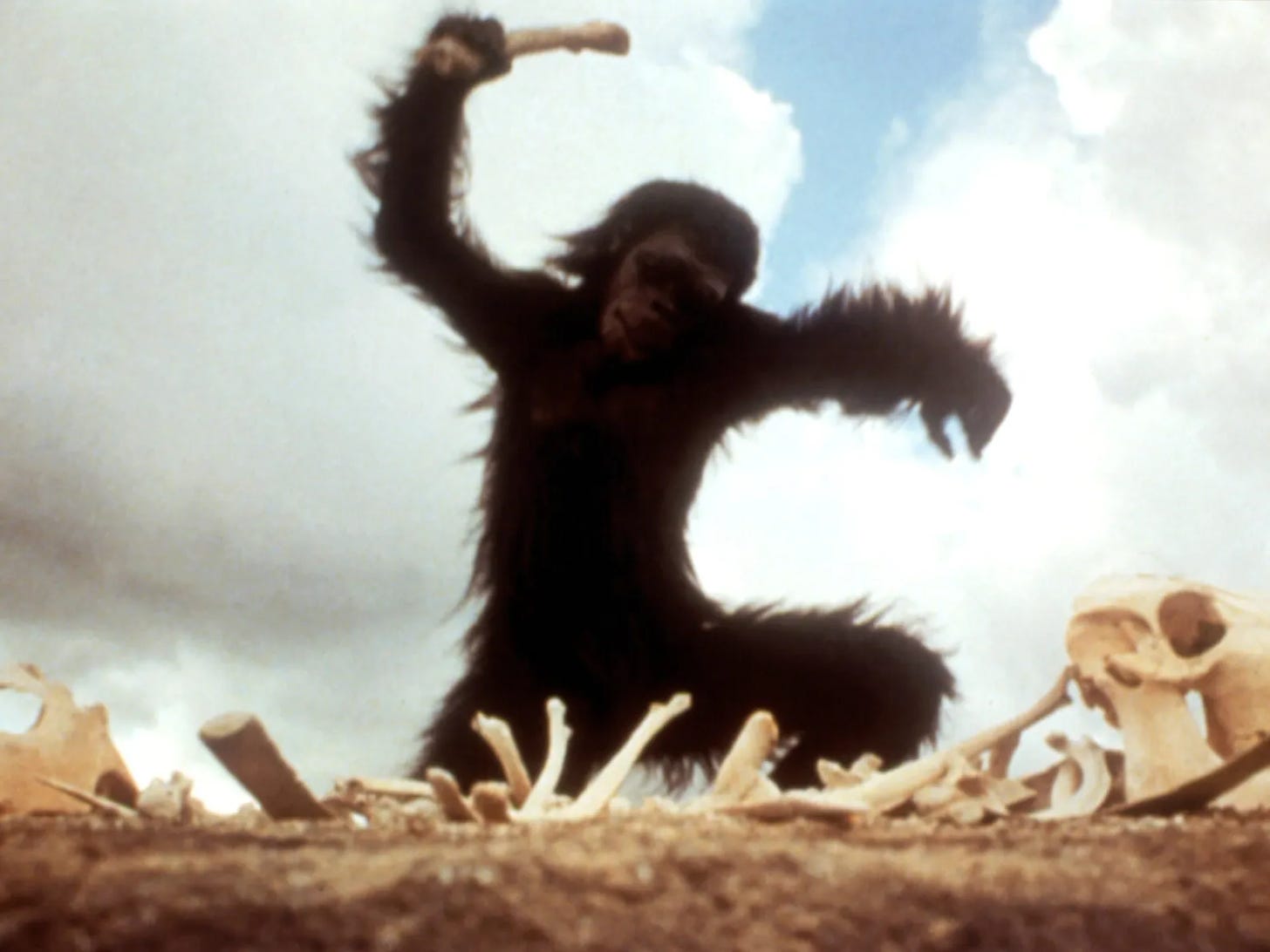
The story of how apes became humans, a story we will never know, could just as easily—and I would say more logically—have progressed not through technologies of violence but through technologies of language. Not through war but cooperation.
The difference between animal communication systems and language is that animal communication systems are about right here and right now. Bird A tricks bird B into dropping that seed by squawking loudly to distract bird B. Language, on the other hand, allows for “not here” and “not now.” It allows for elsewheres and elsewhens, which are properties of human imagination. Language allows an animal to see a picture in its mind of something that is not right in front of them.
Why would you need to develop this form of communication? Imagine another origin scene instead of Kubrick’s. Let’s go back three million years. Ape tribes back then have only about 40 members, including the young. They don't have enough individuals both to eat the meat of a larger dead animal--protein that is going to develop larger brains--and also scare off larger predators that might eat them.
They would need to make an alliance with other troupes, so that together they could eat and survive. They would need a way to convey, using a combination of gestures and sounds, there is a dead hairy mammoth down the road near Moishe’s giant rock. They would need this combination of gestures and sounds to mean the same thing to both tribes, so they could all envision “hairy mammoth” and “Moishe’s rock,” and then they could grunt back, “I’m in.” Language is also a human tool, perhaps our most beautiful tool with the power to protect us.
These thoughts—about origins and extinction, about language and technology, about destruction and survival—have been swirling in my head since the other night when we watched Leave the World Behind (Netflix), directed by Sam Esmail (of Mr. Robot fame), produced by the Obamas, based on a book by Rumaan Alam, and starring Julia Roberts, Mahersala Ali, Ethan Hawke, and Myha'la Jael Herrold. At the start of the story, a family of rich white people rents a vacation house on Long Island, and during their first night there, the owners of the house, two members of a rich Black family, knock on the door, asking to spend the night. The reason? Bad things are happening to good consumer goods, like cars and satellites and the power grid and everything else humans have come to rely on. They’ve all gone bust.
At first the movie asks, How will the Black people and the white people learn to become one as threat mounts around them? Then the movie asks, What will you do when society breaks down?
The movie is compelling. It’s not a great movie. It’s message driven, not character driven. I don’t like movies with messages. If you start watching this movie, you won’t want to stop. I became interested in the message. I can’t stop thinking about it.
At several points, deer gather on the property where the families are isolated and where, they come to understand, they are probably doomed by a series of engineered attacks on the infrastructure of the US. The deer form a mob and come close to the people, looking menacing. Rosie (Farrah Mackenzie), the young daughter of the white couple, thinks the deer know something and have come to warn the humans.
I was reminded of the deer who wander around our property. They don’t crowd around our front door, although they do stare at us. Maybe they have information we should know! Maybe we are all going to go down, as a result of our inobservance. One of the messages of the film is: Look into the woods, and look at each other instead of your screens!
At another point, the Ethan Hawke character seeks help for his son, who is sick, from a survivalist, and he explains he doesn’t know how to function in the world without his cell phone. He has downloaded his relationship to the world into his phone, and now his phone doesn’t work. Kevin Bacon plays the survivalist, and one thing you understand when you watch a movie like this is why Kevin Bacon and Ethan Hawke, two former pretty boys who are now seedy-looking and grizzled around their little beards, should not be cast in the same movie, unless you are doing Restoration comedy and need two actors who are interchangeable.
The movie makes you wonder what you would do in a similar situation, because the underlying principle makes so much sense. It makes sense in an apocalyptic, thriller-movie way, and it makes sense in the world we actually live in. It urges you to set a timer for your contingency plan.
Living in the country, Richard and I have already detached from many big-city supports. Could we live without our phones and without the internet? Could we read all the books in our house and spend more time talking to each other? We could! We already more or less live this way, except for the huge amount of time we spend on our screens, thank god.
Part of me doesn’t want to think about this contingency. It feels like the theory of murderous apes at the core of us rather than cooperative apes, getting together for a meal of protein and expanding their minds. In Leave the World Behind, forces that thrive on chaos have made war, using the technologies of human expansion—AI programs and satellite connectivity—to undermine human survival.
I don’t want to place myself in war imaginatively. The history of wars as a model of history, itself, doesn’t interest me. It bores me. It makes me throw up my hands and say no. It means, often, that a subject needs a death-count to be taken seriously. Taken seriously by whom? Because war is at the top of the heap of serious subjects, and because the suffering caused by war is also considered a serious subject and thereby props up the seriousness of war, things that are not wars get demoted in the popular imagination to lesser subjects. Things like cooperation and the pleasures of aliveness.
In the history of human narratives and in the popular imagination, war exists in the category of male preoccupations. The glamor of war is male, and often things that are not related to war are considered not that male. People read about things that excite them and do things that excite them. As long as people are excited by thinking about war and by considering war the most serious subject that people can contemplate, there will be a market in the imagination for war. As long as there is a market in the imagination for war, there will be wars.
Watching Esmail’s movie, another part of me was scared by its credible recipe for how society ends. A society like the one we live in is vulnerable to forces that want to generate permanent war—the condition of human against human (ape against ape), where we use all of our resources and time to protect ourselves from other people.
This image has a thrilling component, among others. All kinds of people quicken to the project of learning to stay alive in a simpler way, and learning to fight with their hands. It’s like going to the moon, a new frontier. In Leave the World Behind, as in The Last of Us (HBO), we see a landscape of abandoned cars on roads clogged with the stuff of a culture gone to rot in its consumption and its inattention to the natural world.
The movie also puts its face right up against the wish in this country for chaos held by large numbers of very angry white men, men who feel stranded and ineffectual and that Trump has enlisted. These men and the women who love these men want to destroy a society that’s made more room for women and for Black people and for gay people and for trans people. These men and the women who love these men have also, as part of their war, formed an alliance with religious fundamentalisms all over the world. The temperature of everything that Trump and Musk represent was reset to a blaze level after the win of Obama and the run of Hilary Clinton.
In the movie, the white supremacists controlling the social breakdown make it appear, as part of their tactic of chaos, that the US has been attacked by foreign terrorists. We never know for sure if this is true, but it’s called into question in exactly the same way the extreme Right has undermined any sense of communal truth telling, factual reporting, and firm knowledge.
How did we get to a point where preparing, even mentally, for such a prospect, makes a kind of sense? Partly it’s because, right now, we’re flooded by the horrors of real wars and real suffering. We can barely think about anything else, and if we do we feel lost, idiotic, trivial, and detached from reality. We’re not detached from reality. We’re taking a moment to be alive for the pleasure of being alive, a pleasure that everyone who is suffering would want for themselves as well as for us. We’re not detached from reality, but we’re made to feel we are by the consuming ideology of violence and of war as uppermost contemplations. On the last day of my life, I hope I will also laugh.
I hide out from the latest news of Trump and his followers, some of whom operate in the military and could, indeed, implement the exact toppling of society portrayed in the film. The movie doesn’t make the thrill of survival sexy. It makes Rosie’s wish to watch the last episode of Friends seem decent and harmless. She tells her cynical older brother she cares about the characters on the show. He tells her to find something else to care about.
Isn’t this always our task, to figure out who we love and what we care about? It’s not easy on the intimate level, the film shows, as the families unite. People annoy each other with their proximity and needs. Solitude is always a luxury, especially for women and for Black people, who need to separate from the nagging and dangerous expectations others place on them.
The framework of this film, where society breaks down, owing not to zombies, a biological plague, or an alien invasion but rather to forces already here is what makes it feel real. Richard’s contingency plan for us if Trump wins the next election is we would go to England for four years. What about our house and belongings? They would stay here and wait for us? I don’t think he’s being farfetched, and I can imagine us living yet another new life.
Most of the things said about aging are wrong, but some are not wrong. The thing about looking back at the desert, or the prairie, or the highway of a life, looking back at a prospect like that, I’m doing it these days with a kind of suffering for my mistakes. Another thing we’re told about aging is that life shrinks back. The meat falls away from the bone. You stand there, saying goodbye to people and your hopes as they recede. This, I find, isn’t true. Anything can always happen. Friends can arrive you had no idea existed. I can see Richard and me living a whole new life, maybe even eating fish and chips again in Lyme Regis. I can see this about our life personally, but what about the rest of society?





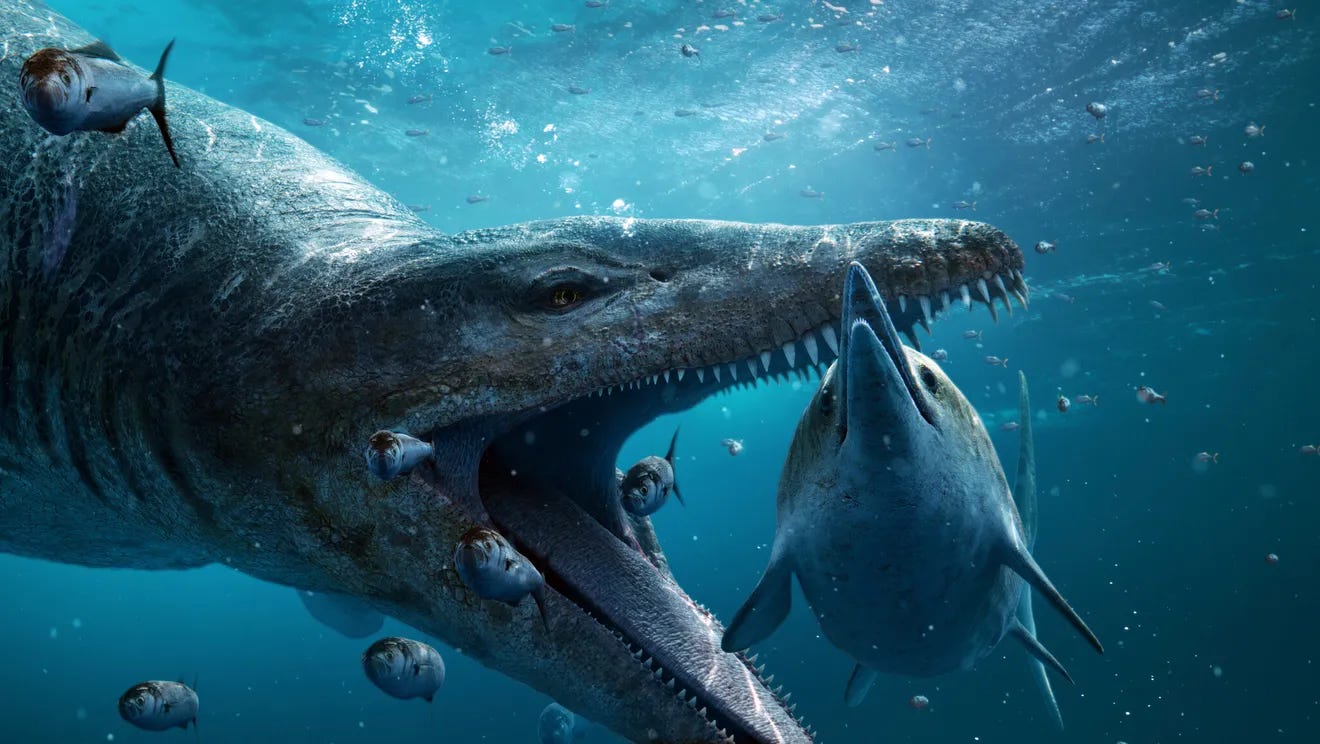
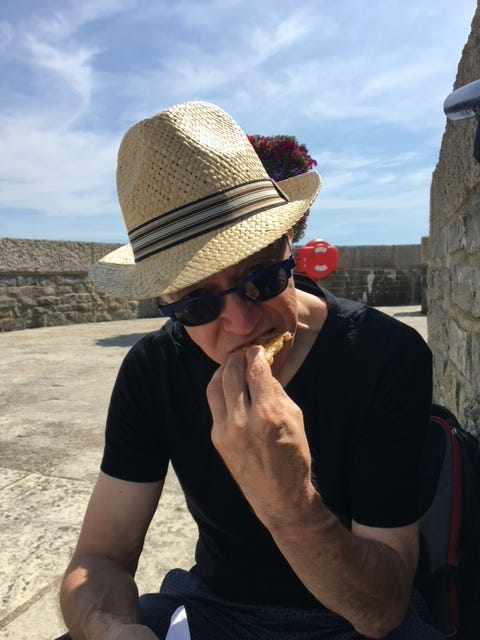
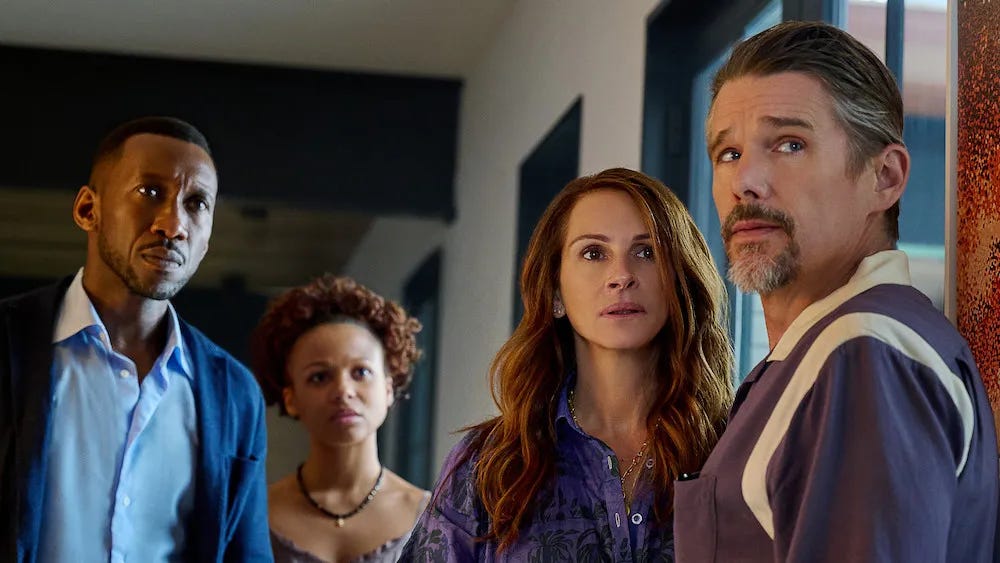
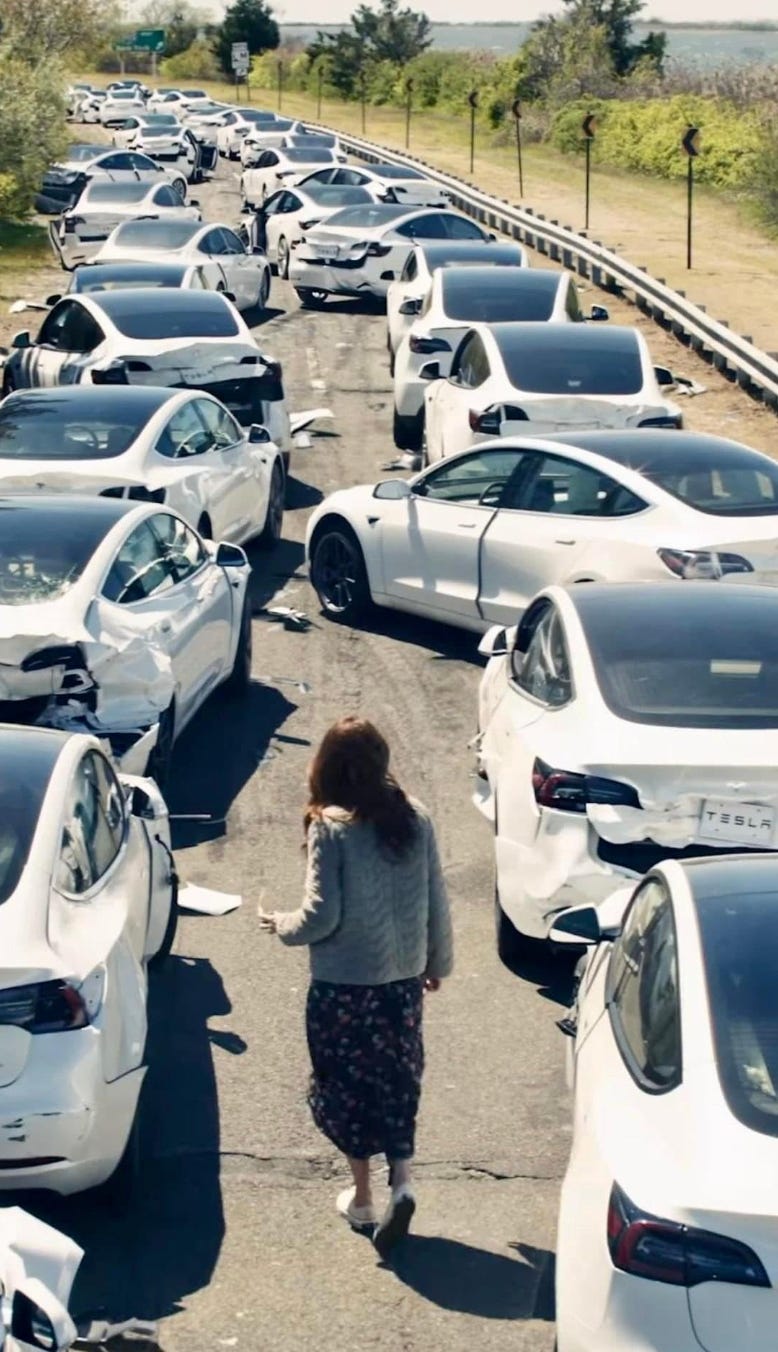


I have been hesitant about watching that film. I almost feel like I need to guard my heart from adding things that haven't happened yet to the things that are happening. The politics of this day are shocking to me (how the hell did we get here?...how the hell do we get out?). I'm trying to shrink my life by concentrating on what is directly in front of me...the land...the sky...people I love...people I want to love better. Wonderful and thoughtful piece Laurie Stone.
My partner and I became acquainted in late middle-age and have managed to strengthen our relationship even as we enter early-stage finality. We are Alaskans, already removed from the mainstream. We both have retained our Whole Earth Catalog hippie-era attitudes of shunning toxic consumerism. We grow, gather, forage and catch most of our food. We now live in our state’s largest city with a population less than some neighborhoods in the rest of the world. We wouldn’t classify ourselves as survivalists, but do have the skill sets and, despite old age, the physical ability, to live off-grid. We have no desire to do so, however. Our house is heated with natural gas and we are connected to city water/sewer, electrical and internet services. We have lived without those conveniences, but have happily succumbed to enjoying those basic comforts, although we both refuse to watch TV. We are aware of the madness of the world, the insanity of MAGA, and our local political and social dysfunction. We each have bright, curious and innocent grandkids, so we try to be optimistic, but that is becoming more difficult. All I can do is keep on keeping on. I’ll walk over to my son’s house soon and take the g’daughter to kindergarten by sled. We’ll sing and laugh en route as if all is right and good in the world. As I walk back home, I’ll be wondering when my microcosm of perfection will evolve into Cormac McCarthy’s ‘The Road’. I don’t see any other likely outcomes. Sigh.